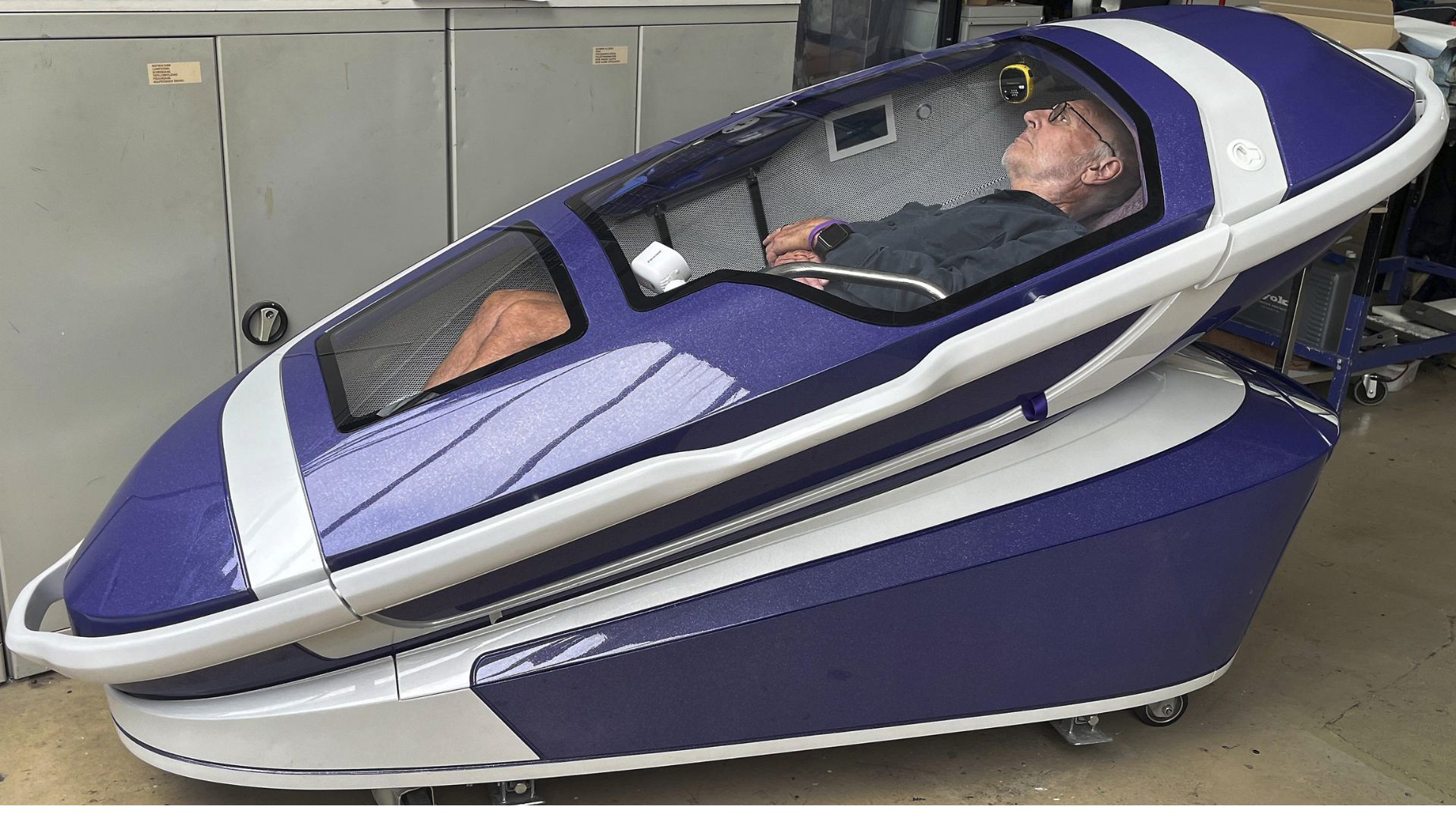The debut use of the controversial “Sarco” pod, a device designed for assisted suicide, has become the subject of heated debate in Switzerland. On September 23, a 64-year-old American woman reportedly used the pod near a forest cabin in Merishausen, Switzerland, intending to end her life. However, initial reports that she died peacefully are now facing scrutiny after claims of strangulation marks on her neck emerged, leading to multiple arrests and an expanded investigation.
What is the Sarco Pod?
The Sarco pod is a futuristic capsule designed to facilitate euthanasia through nitrogen-induced hypoxia. When the occupant presses a button, nitrogen gas fills the sealed pod, reducing oxygen levels and causing the user to lose consciousness and eventually die from suffocation. Invented by right-to-die activist Dr. Philip Nitschke, the device was developed by Exit International, an assisted-suicide group based in the Netherlands. Swiss law allows for assisted suicide under specific conditions, provided no external force or self-serving motive is involved.
The Woman’s Final Moments Inside the Pod
According to various sources, the woman, who suffered from a rare and severe skull base osteomyelitis and had been contemplating euthanasia for two years, entered the Sarco pod under the supervision of Florian Willet, president of The Last Resort, a Swiss affiliate of Exit International. After confirming her readiness, she reportedly lay down, closed the lid, and activated the pod herself. Willet instructed her to breathe calmly as nitrogen filled the capsule. Within minutes, her oxygen levels fell, and she reportedly died within half an hour. Willet later stated that she appeared to have passed away peacefully.
Emerging Reports of Strangulation Marks After the woman’s death, her body was examined, and local authorities received notification of her assisted suicide. However, controversy erupted when autopsy reports allegedly indicated “strangulation marks” on her neck, casting doubt on the circumstances of her death. According to sources like The Times and Dutch newspaper de Volkskrant, a forensic report highlighted “severe injuries” on her neck, prompting the public prosecutor in Schaffhausen to broaden the investigation to include the possibility of murder.
Investigations and Legal Proceedings Following the autopsy findings, the prosecutor’s office in Schaffhausen opened a criminal investigation, leading to the arrest of several people, including Florian Willet. Prosecutors are now investigating the case for possible incitement and accessory to suicide, as well as homicide. Though details remain undisclosed, Swiss authorities are focusing on whether the death might have involved foul play.
Exit International’s Defense and Counterclaims Exit International and The Last Resort have categorically denied any allegations of misconduct. In a statement, Exit International founder Dr. Nitschke affirmed that the Sarco pod functioned exactly as intended, providing a “peaceful, non-drug-induced death.” The organization argues that the strangulation marks could be related to the woman’s skull base osteomyelitis, a condition known to cause disfigurement and complications near the neck. The Last Resort also criticized the Schaffhausen prosecutor’s office for withholding the full autopsy report, which has fueled public speculation.
The Broader Debate: Ethics of Assisted Suicide and Technology The ongoing Sarco investigation has intensified discussions around assisted suicide, particularly with emerging technologies like the Sarco pod. While advocates argue that devices like Sarco enable dignified death without drugs, critics worry about the risks of such technology, particularly in light of evolving legal and ethical standards around euthanasia.
Conclusion: Awaiting Answers For now, the details surrounding the first reported death in a Sarco pod remain clouded in uncertainty. With allegations of strangulation, questions of legality, and ongoing arrests, Swiss authorities face mounting pressure to provide clarity and transparency. The full autopsy report, when released, could determine whether the Sarco death was truly a peaceful end or if there is more to the story than initially thought.







